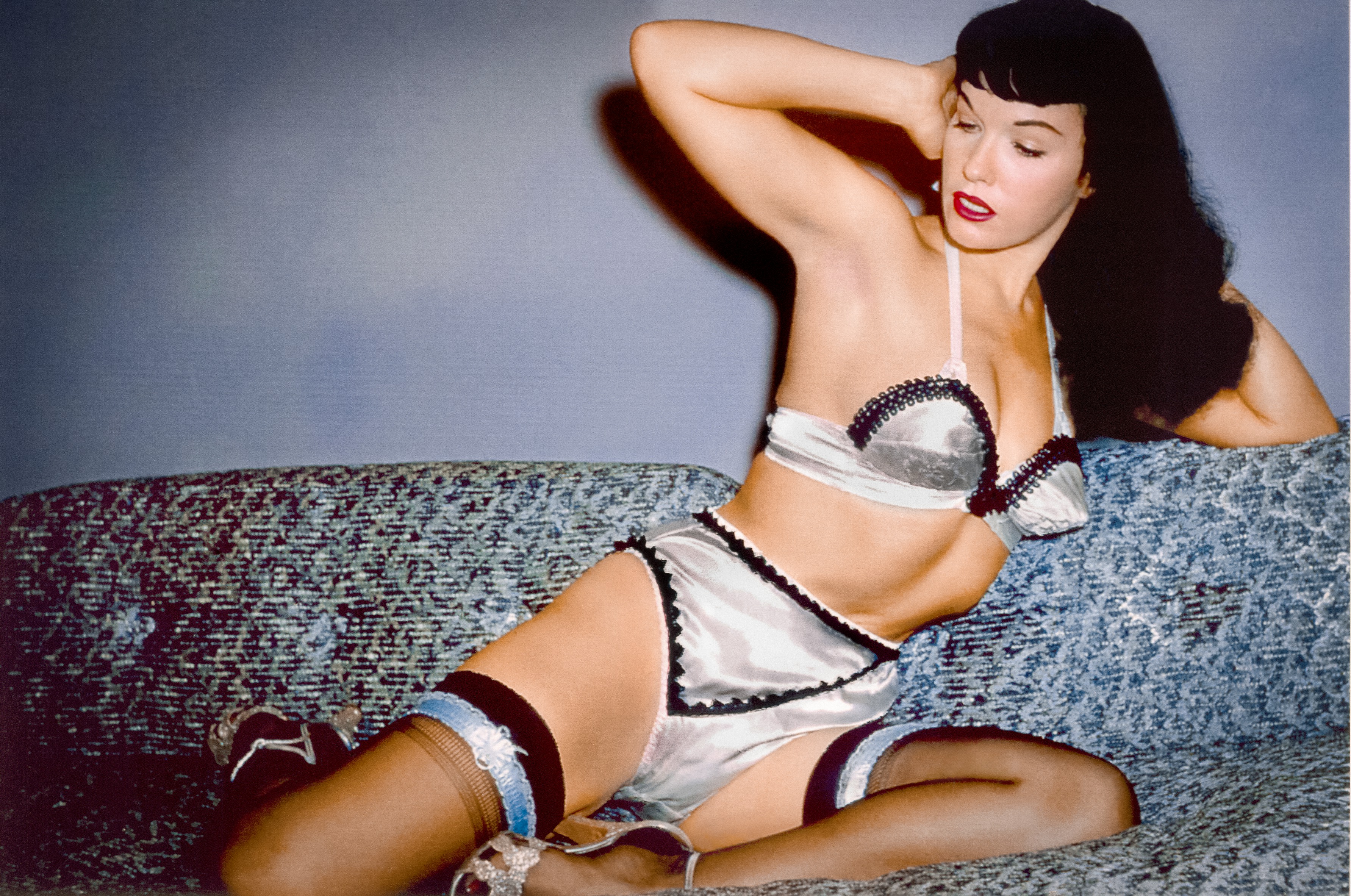Bettie Page Reveals All
Runs Fri., Jan. 3-Thurs., Jan. 9 at SIFF Film Center. Not Rated. 101 minutes.
This new documentary contains many disclosures, some of them strange, some terribly sad. But one of the weirdest is surely the description of a “camera club” in New York in the late 1940s and early ’50s, shutterbugs who trooped out of town every weekend with a handful of models to take pin-up photos. Such pictures, their subjects partially clad or entirely barenekkid, might be sold by mail-order or to magazines like Wink, or Cavalier—you know, for discriminating readers. Some of these (apparently docile) smut-purveyors are still around; interviewed for this documentary, they suggest the kinds of bottom-feeding oddballs from Tim Burton’s Ed Wood, but without the florid personalities. The mind boggles at the thought of these blandly organized jaunts and the mixture of tawdriness and innocence they conjure up. (Such scenes were suitably odd in the 2005 biopic The Notorious Bettie Page, which starred Gretchen Mol.)
At the center of many of those photographs was Bettie Page (1923-2008), an unusually expressive model who was reasonably well-known on the underground nudie circuit in the ’50s and then became a major cult icon by the ’80s. This is her story; and thankfully director Mark Mori uses audiotape of Page recalling her life to string together the movie’s narrative (and its ample full-frontal photos and film clips). We hear from a few others—the photographers, one of Page’s ex-husbands, and the inevitable Hugh Hefner—but the best of the film is Page’s own matter-of-fact voice, huskily spinning her tale.
The general aura that surrounds Page’s resurgent popularity emphasizes the campy, cheerful, sex-positive nature of her image, but her story isn’t a happy one. Molested as a child by her father and sexually assaulted as an adult, Page soldiered on through bad marriages and a few life-threatening incidents. She found God and quit the pin-up business in the ’50s, spiraling into mental instability in middle age. Page says she enjoyed posing for pictures, even the bondage and spanking films made by the notorious Irving Klaw (a perfectly nice and mild fellow, according to Page).
Yet, as full of voyeuristic hot air the film’s commentators may be, it is true that Page’s spark leaps out of her photographs—she’s visibly thriving under the validation and reward she appears to be getting from the camera. (So many good actors have that same hunger to be looked at.) You can’t help wondering where that need came from, which is the troubling bass line beneath the film. However much her admirers coo about the delight or empowerment they see in those vintage pix, and however much we might appreciate the adults-only arrow aimed at the heart of the Eisenhower-era facade of respectability, the overall takeaway from Bettie Page Reveals All is sadness—and a lingering unease about the appetite that needs to feed on the flesh of ambivalent icons.
film@seattleweekly.com







